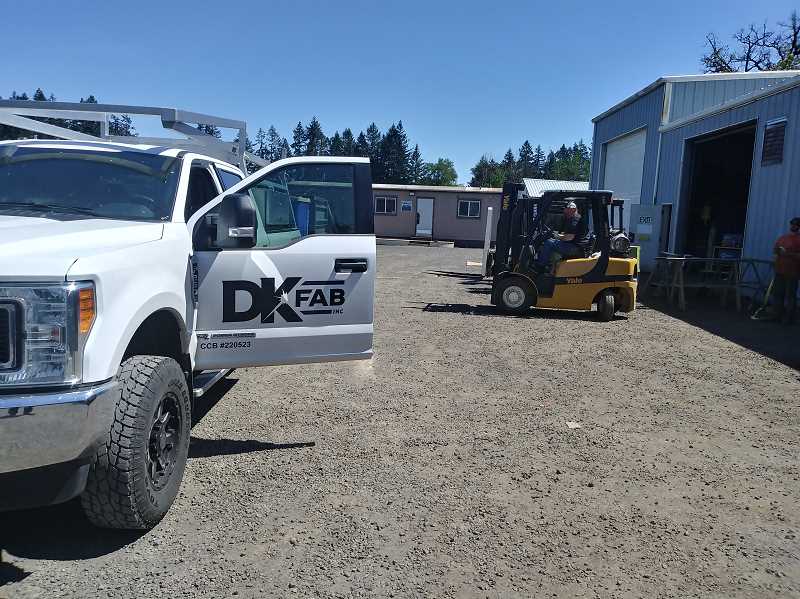Marion County is the hands-down top agriculture-production county in Oregon, and a new program implemented by county officials serves to maintain that designation.
Woodburn based DK Fab became one of two recipients granted a limited tax-exempt status through the new Marion County program, “Rural Industrial Investment Exemption,” aimed at providing investment incentives in agriculture.
In April the Marion County Board of Commissioners approved the tax exemption via a resolution with Kevin Cameron and Colm Willis voting favorably and Sam Brentano abstaining due to personal connections with the business.
A report to the commission noted that DK Fab plans to invest about $4 million in new equipment, for which it applied to the program’s exemption standing. The exemption amounts to $43,259.20 each year for three years.
Marion County Economic Development Coordinator Tom Hogue explained that the agriculture-supporting RIIE program developed through the state legislature, with advocacy and support from the county, dating back to the 2016 session. Marion County became the first to enact an implementing ordinance for the program in July 2018, and it became active last October.
The purpose of the exemption is to afford a business time for its new investments to generate revenue. Hogue said it also demonstrates the county’s support for investment in the agricultural industry.
“Cities have enterprise zones, and there are quite a few of them across the state. But there are very few directed tax exemptions for rural areas,” Hogue said. “Here we are in Marion County where ag is our number-one industry, and yet it’s very difficult to do the kinds of exemptions and incentives that cities take for granted and (implement) as part of their business every day.”
DK Fab operates in the 11200 block of Serres Lane, just east of Woodburn, and also has a facility in Zillah, Washington. The company, which began in 1999 as a mobile welding and steel fabrication shop in Woodburn, provides processing equipment for a variety of regional agricultural crops, including hops and hazelnuts.
The ag-based steel fabrication business plans to build two shop buildings on 5.5 acres, about 48,000 square feet, to install processing equipment that includes machinery that cuts, strips, sorts, dries and packages various agricultural crops, DK Fab’s controller and project manager Henry Schacher told the county.
“We fabricate a wide range of custom parts and also stock off-the-shelf replacement parts,” Schacher noted. “We are one of two facilities in the US that manufactures a specialized formed wire called a Hop Picking Finger from raw materials. This product has several applications outside of hop picking.”
In addition to DK Fab, Hopmere Cold, LLC, of the Brooks/Wheatland area near Willamette Mission State Park was granted an exemption. Hopmere plans to build a $2.6 million hop-processing facility. Its exemption amounts to $31,053.88 per year, also for three years.
Hopmere spokesman Doug Weathers told the county that the company’s investment provides for energy-saving, smart technology for food-grade cold storage, primarily hops and hop products. The company anticipates handling more than 4-million pounds of hops annually.
The Hopmere exemption was passed unanimously by the commission.
“Increasingly, it’s important for us to have high-tech capability in our ag businesses,” Willis said. “My wife’s family is in the dairy business, and they just bought a robot that milks their cows, and it’s very, very expensive. But we are in a globally competitive market for ag now, and if we don’t make these capital investments, our ag industry is going to suffer.”
Hogue agreed, and indicated that it is important for an agrarian-steeped county such as Marion to keep a abreast of industry developments.
“Ag industry is changing rapidly and the kind of investments that are going to be needed to keep up with that are going to be significantly expensive and involve a lot of technology,” Hogue told the commission. “I think that as we go forward and we see the results of this kind of exemption, it will give us one way to have our finger on the pulse of what’s happening.”
Hogue saluted the Marion County Assessor’s office and SEDCOR for their work in facilitating the program’s specifics and vetting the initial applicants.



